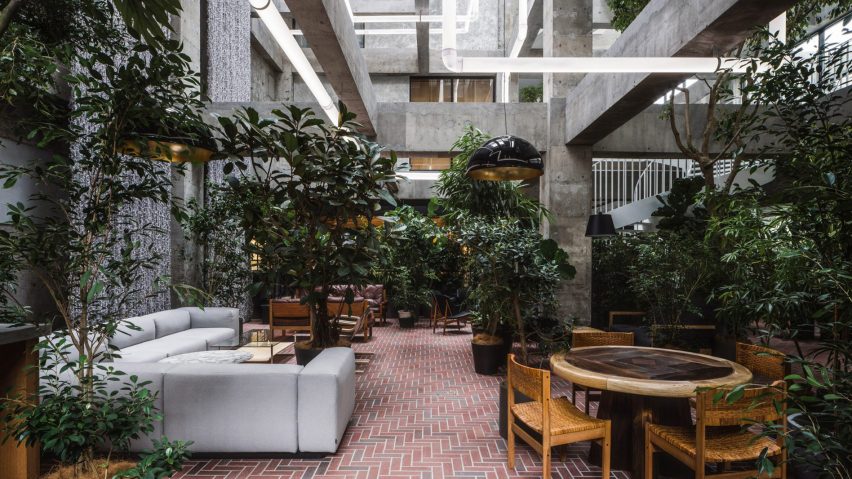
Ten plant-filled hotel interiors that feel close to nature
A greenhouse-cum-dining room and a miniature forest in a skyscraper are among the verdant hotel interiors featured in our latest lookbook.
Whether tiny succulents or fully-grown trees, plants can help connect an interior to its surroundings, provide an oasis of calm away from city life, or act as living space-dividers to break up an open-plan interior.
These ten hotel interiors from the Dezeen archive show how adding greenery to public spaces can help give them a friendlier, more organic feel.
This is the latest in our series of lookbooks providing curated visual inspiration from Dezeen's image archive. For more inspiration see previous lookbooks showcasing bedrooms with clever storage solutions, escapist holiday homes and interiors by Ukranian designers.
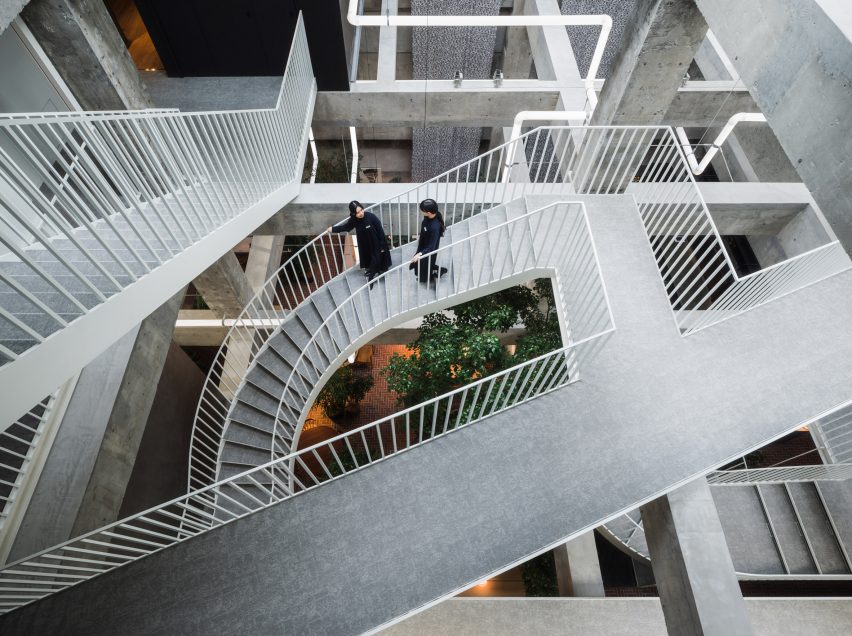
Shiroiya Hotel, Japan, by Sou Fujimoto
Tiled floors, wooden furnishings and a plethora of plants create a piazza-like feel in the skylit atrium of this hotel in Maebashi (top and above), which serves as a reception, restaurant and lounge.
To create the giant four-storey space, Japanese architect Sou Fujimoto dismantled all of the walls and floors of the original 1970s building, while a number of new guest suites and a Finnish sauna are housed in a grass-covered extension.
Find out more about Shiroiya Hotel ›
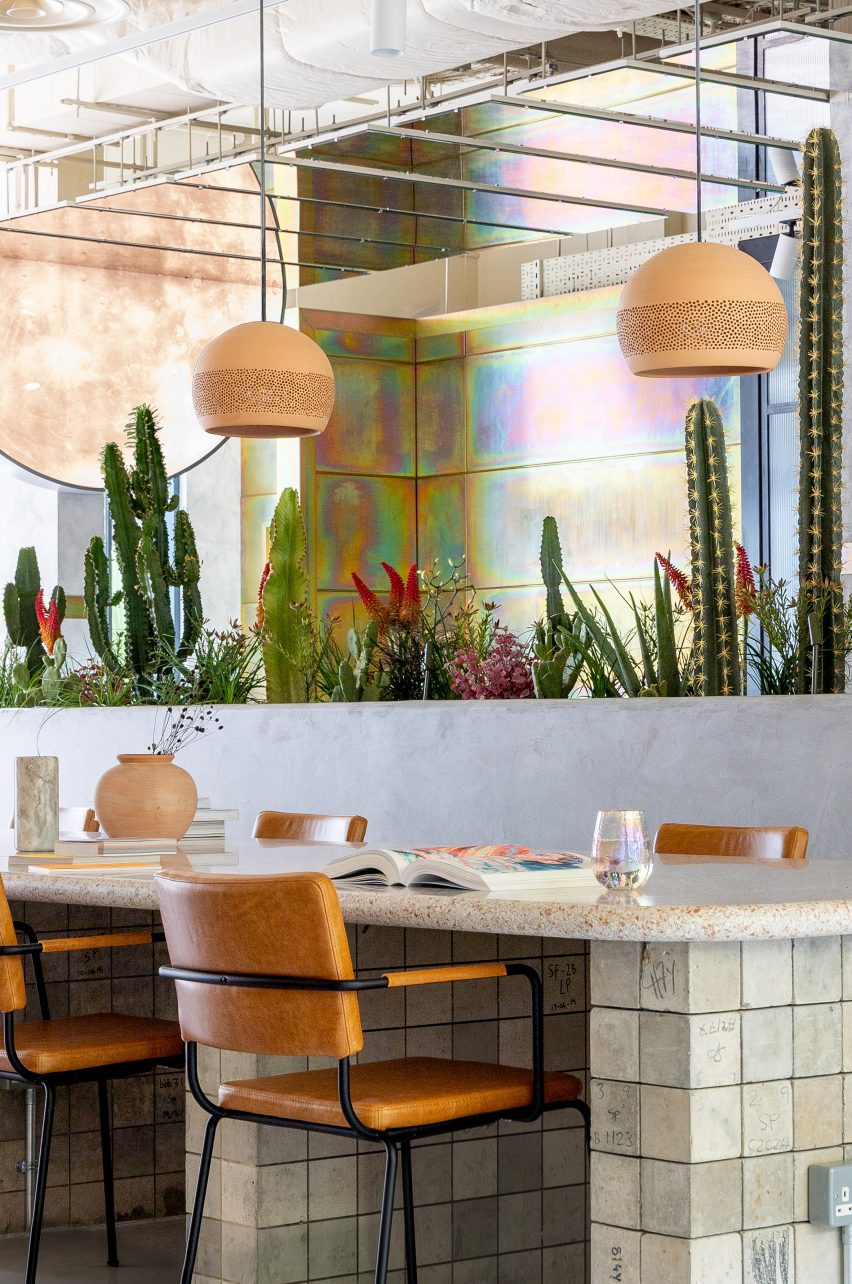
Bermonds Locke, UK, by Holloway Li
Interiors studio Holloway Li drew on the sun-scorched landscapes of California when designing this London hotel, in order to provide guests with a sense of escapism.
Mirrored ceilings in the reception create the impression of shimmering desert mirages, while huge planters filled with cacti and succulents separate the co-working area from the cocktail bar and restaurant.
Find out more about Bermonds Locke ›
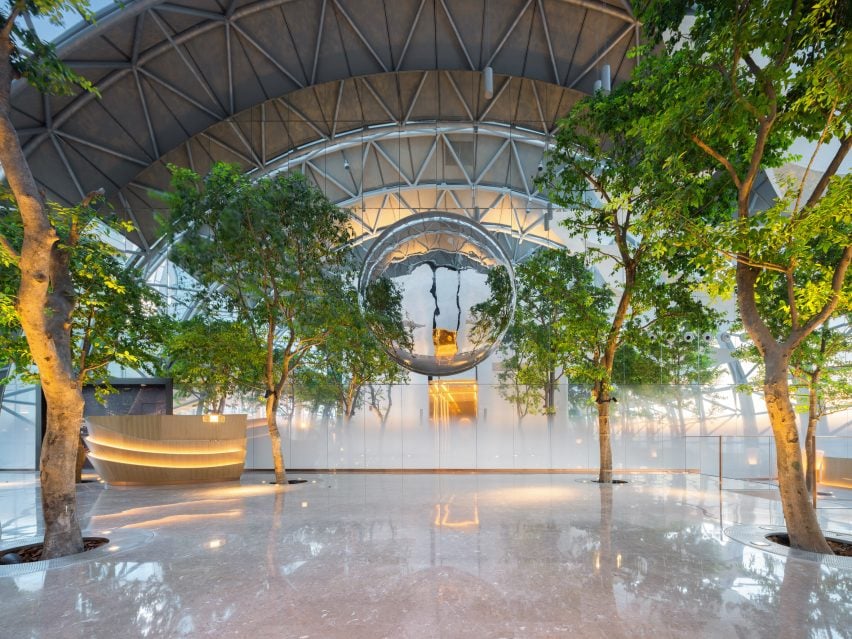
Intercontinental Chongqing Raffles City, China, by CL3
Located on level 42 of a 250-metre tall skyscraper complex, the lobby lounge of Chongqing's Intercontinental hotel was designed to resemble a "mountain landscape in the sky".
Here, guests can take in views of the surrounding city from a number of curved wooden seating boots, nestled amongst the trees sprouting up from the glossy stone floor.
Find out more about Intercontinental Chongqing Raffles City ›
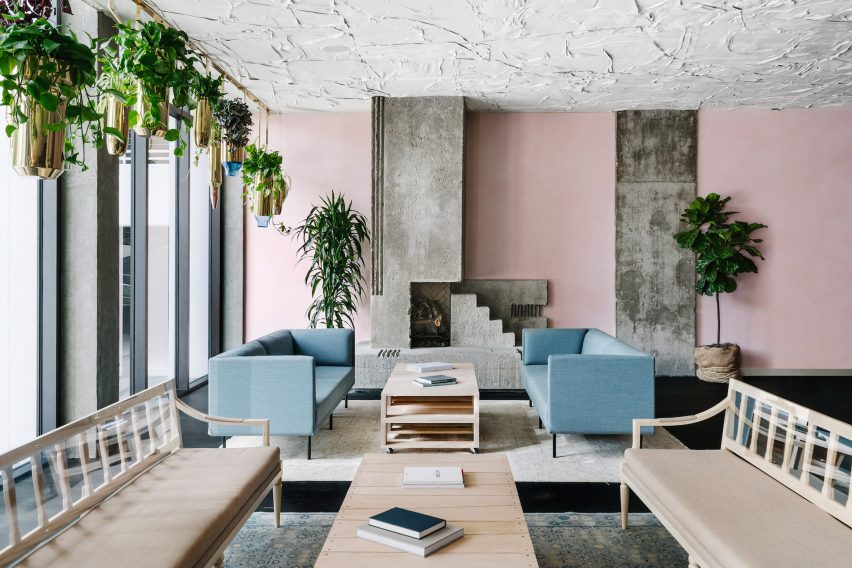
Line Austin, USA, by Sean Knibb and Michael Hsu
Architect Michael Hsu and interior designer Sean Knibb turned a mid-century tower in Austin into a modern hotel by stripping the structure back to its bones and opening it up to views of the nearby Colorado River.
In the lobby, hanging plants are suspended from the ceiling in golden vessels and help to reinforce this connection to the outdoors, while walls and furnishings are finished in muted hues of duck egg blue and ballet-slipper pink.
Find out more about The Line Austin ›
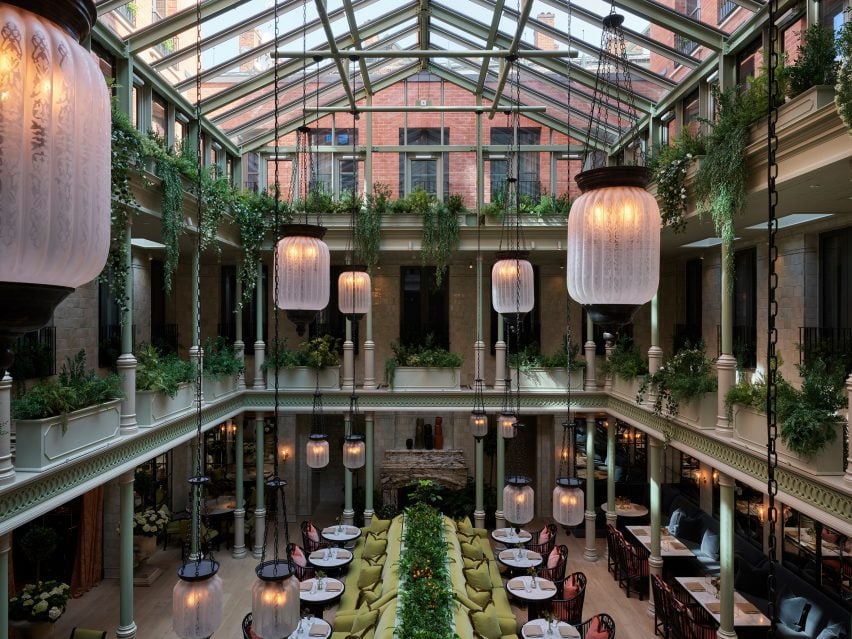
NoMad London, UK, by Roman and Williams
The first international outpost from American hospitality chain NoMad is set in a former magistrates court and police station in London's Covent Garden.
A former yard at the centre of the building was transformed into a glass-domed restaurant, filled with freestanding trees and climbing plants that wind their way down two tiers of columns.
Find out more about NoMad London ›
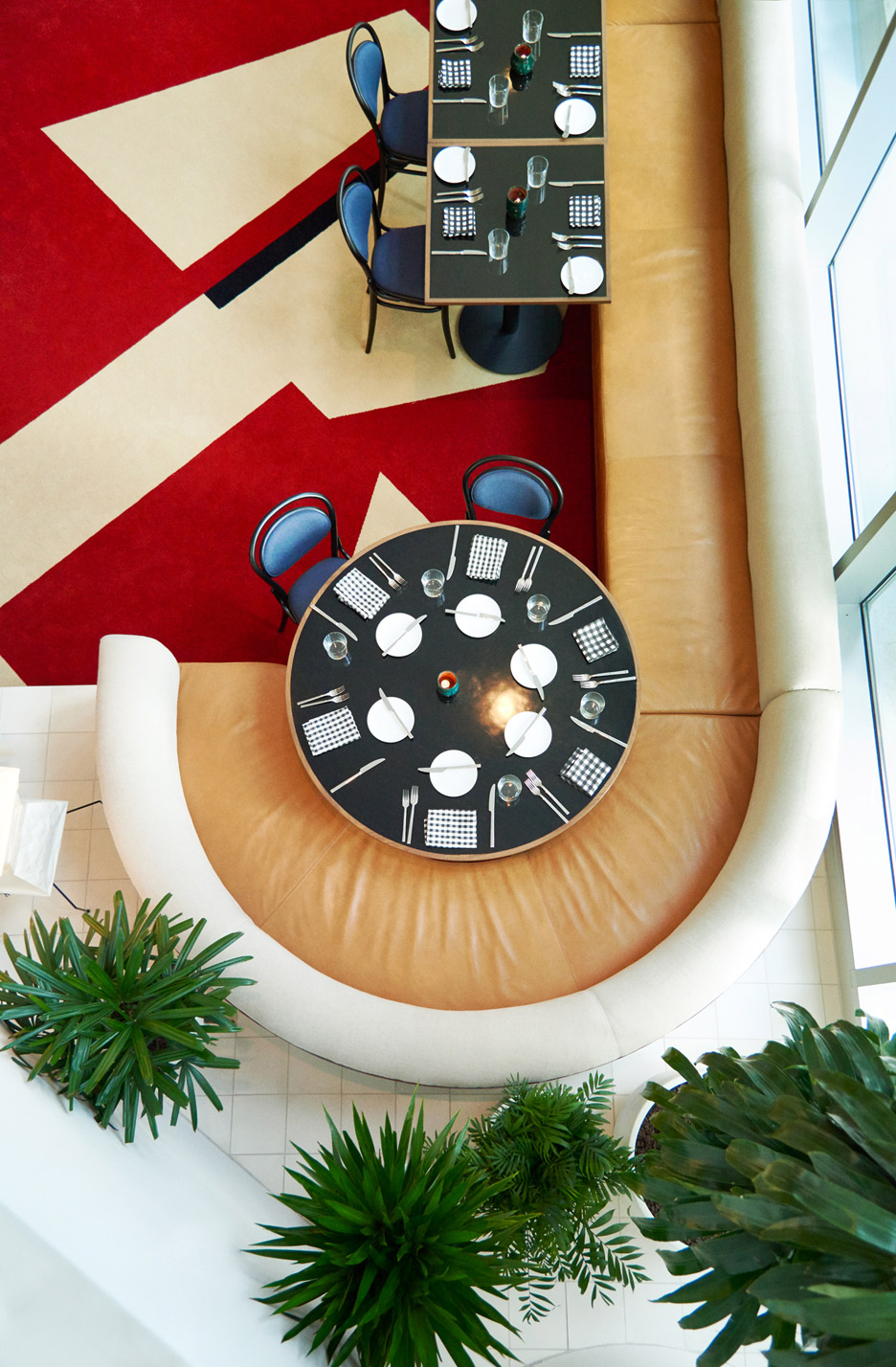
Durham Hotel, USA, by Commune Design
LA studio Commune Design drew on wide-ranging references when designing the retro interiors of this North Carolina hotel, ranging from the work of Bauhaus designers Josef and Anni Albers to the arts and crafts aesthetic of the state's pioneering art school Black Mountain College.
The converted mid-century bank now houses 54 guest suites, a rooftop lounge and an eponymous restaurant, where towering greenery surrounds leather-upholstered banquet seats.
Find out more about the Durham Hotel ›
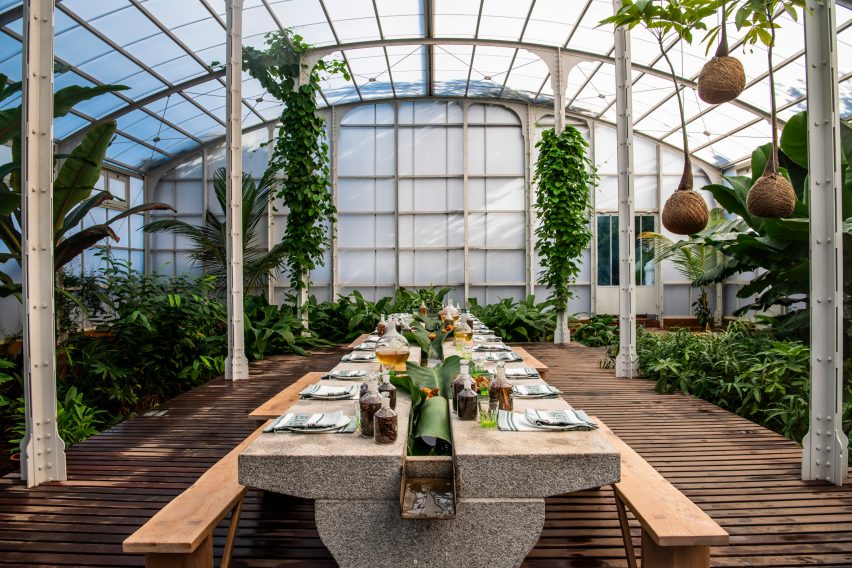
Babylonstoren, South Africa, by Malherbe Rust Architects
Cinnamon, nutmeg, ginger and turmeric are among the aromatic plants found in the greenhouse-cum-dining hall of the Babylonstoren farmhouse hotel in South Africa's Cape Winelands.
An eight-metre-long granite dining table with water running down its centre takes up the centre of the space, where guests can sample foods infused with different spices while learning about their historical value.
Find out more about Babylonstoren ›
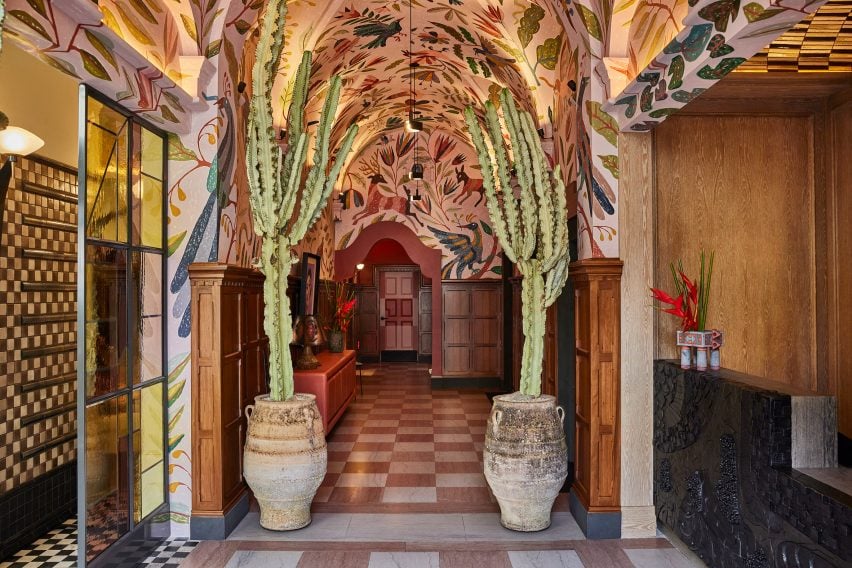
Downtown LA Proper, USA, by Kelly Wearstler
Guest enter the Proper hotel in Downtown LA via an ornate archway, which is flanked by column-like cacti in rustic pots and decorated with a hand-painted mural designed by local artist Abel Macias that draws on the flora and fauna of Latin American folktales.
The 148-room hotel combines 136 different kinds of tiles and an eclectic mix of stylistic references, informed by Mexican, Moroccan, Spanish and Portuguese design.
Find out more about Downtown LA Proper ›
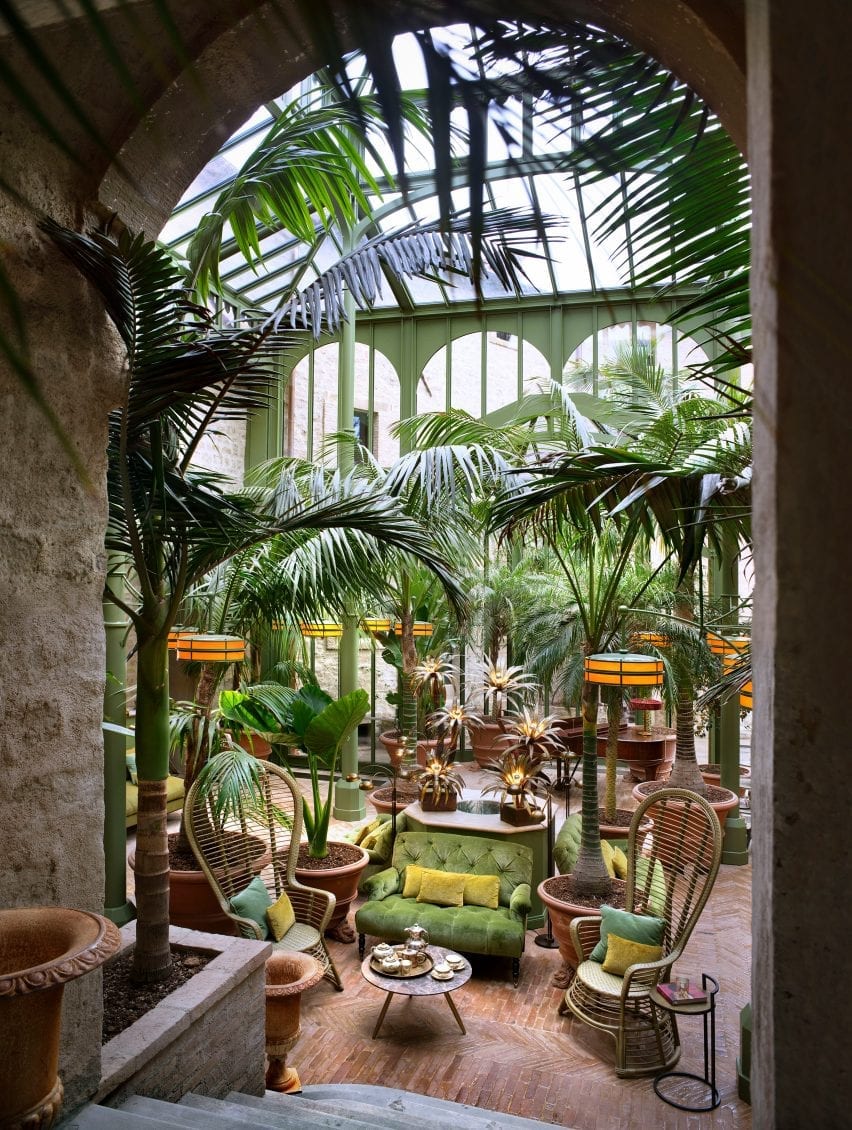
Hotel Castello di Reschio, Italy, by Benedikt Bolza
Count Benedikt Bolza and his family lived in a 1,000-year-old castle in the Umbrian countryside for a decade while working to convert it into a sprawling hotel and creating custom furniture for its 36 suites.
The verdant Palm Court is a new structural addition modelled on iron-and-glass Victorian conservatories, which is intended as a space for reading and conversation.
Find out more about Castello di Reschio ›
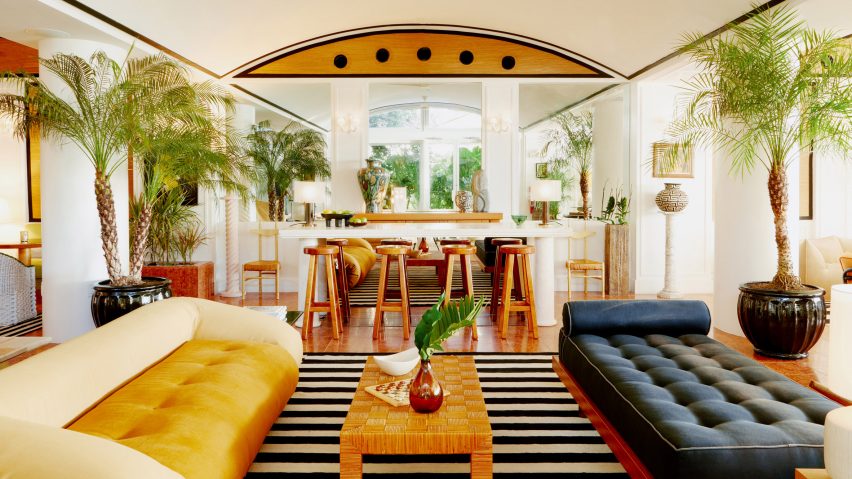
Palm Heights, Cayman Islands, by Gabriella Khalil
Flea market finds from Paris, Los Angeles and Mexico populate this boutique hotel in Grand Cayman, including collectible design pieces like Mario Bellini sofas, Ingo Maurer lights and an Ettore Sottsass rug.
The interior is styled to look like a 1970s-era Caribbean mansion, with verdant palm trees and other foliage brought inside in a nod to its location on the well-known white-sand Seven Mile Beach.
Find out more about Palm Heights ›
This is the latest in our series of lookbooks providing curated visual inspiration from Dezeen's image archive. For more inspiration see previous lookbooks showcasing bedrooms with clever storage solutions, escapist holiday homes and interiors by Ukranian designers.